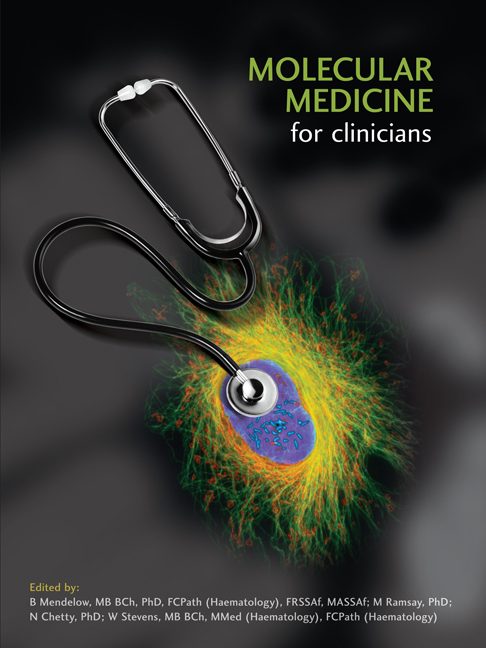Book contents
- Frontmatter
- Contents
- Foreword
- Acknowledgements
- Chapter 1 Introduction
- Keynote Essay 1: Defining Who We Are: DNA in Forensics, Genealogy and Human Origins
- Section 1 Principles Of Cellular And Molecular Biology
- SECTION 2 MOLECULAR PATHOLOGY
- SECTION 3 MOLECULAR THERAPEUTICS
- SECTION 4 RESEARCH AND THE CONTINUING EVOLUTION OF MOLECULAR MEDICINE
- Glossary
- Contributors’ Biographies
- Source Material And Recommended Reading
- Permissions And Credits
- Index
Keynote Essay 1: Defining Who We Are: DNA in Forensics, Genealogy and Human Origins
Published online by Cambridge University Press: 04 June 2019
- Frontmatter
- Contents
- Foreword
- Acknowledgements
- Chapter 1 Introduction
- Keynote Essay 1: Defining Who We Are: DNA in Forensics, Genealogy and Human Origins
- Section 1 Principles Of Cellular And Molecular Biology
- SECTION 2 MOLECULAR PATHOLOGY
- SECTION 3 MOLECULAR THERAPEUTICS
- SECTION 4 RESEARCH AND THE CONTINUING EVOLUTION OF MOLECULAR MEDICINE
- Glossary
- Contributors’ Biographies
- Source Material And Recommended Reading
- Permissions And Credits
- Index
Summary
INTRODUCTION
Humans are fascinated by humanity and what makes us human. We see ourselves at the centre of the evolutionary stage, and most of us assume the inevitability of our existence. What makes modern humans different from the great apes and earlier hominids? When in evolution and in which hominids did important ‘human’ physical traits and behaviour appear? Where in our larger brains do human-specific capabilities reside? These, among a host of other questions, have been longstanding issues that palaeo-anthropology and comparative anatomy studies have attempted to address. More recently, the mystery of human origins has been studied at the genetic level to elucidate mechanisms underlying the formation and evolution of human traits.
Genomes diverge over time. Most of the sequence changes that accumulate between any two related species are selectively neutral or nearly neutral in that they do not contribute to functional or phenotypic differences. The challenge now is to elucidate the number, identity and functions of genes, and the specific changes within them, that have shaped the evolution of traits. With the availability of the human and chimpanzee genome sequences, genomic sequence com parisons between species now hold clues to questions like: Why do we look different from one another? Why are we so different from other species? Even though human and chimpanzee gene sequences are nearly 99% identical, it has been shown that in the human lineage, certain genes, for example those involved in olfaction, show a significant tendency to be under positive selection. It seems likely that the different lifestyles of chimps and humans might have led to divergent selection pressure on olfactory receptors.
Several other classes of genes – amino acid catabolisms, developmental processes, reproduction, neurogenesis and hearing – also show strong evidence for positive selection in the human lineage. Speech is considered to be a defining characteristic in humans.
Genomic research – comparative genomics, population genetics, gene-expression analysis and medical genetics – have begun to make complementary inroads into understanding the complex genetic architecture of human evolution.
- Type
- Chapter
- Information
- Molecular Medicine for Clinicians , pp. 6 - 12Publisher: Wits University PressPrint publication year: 2008



